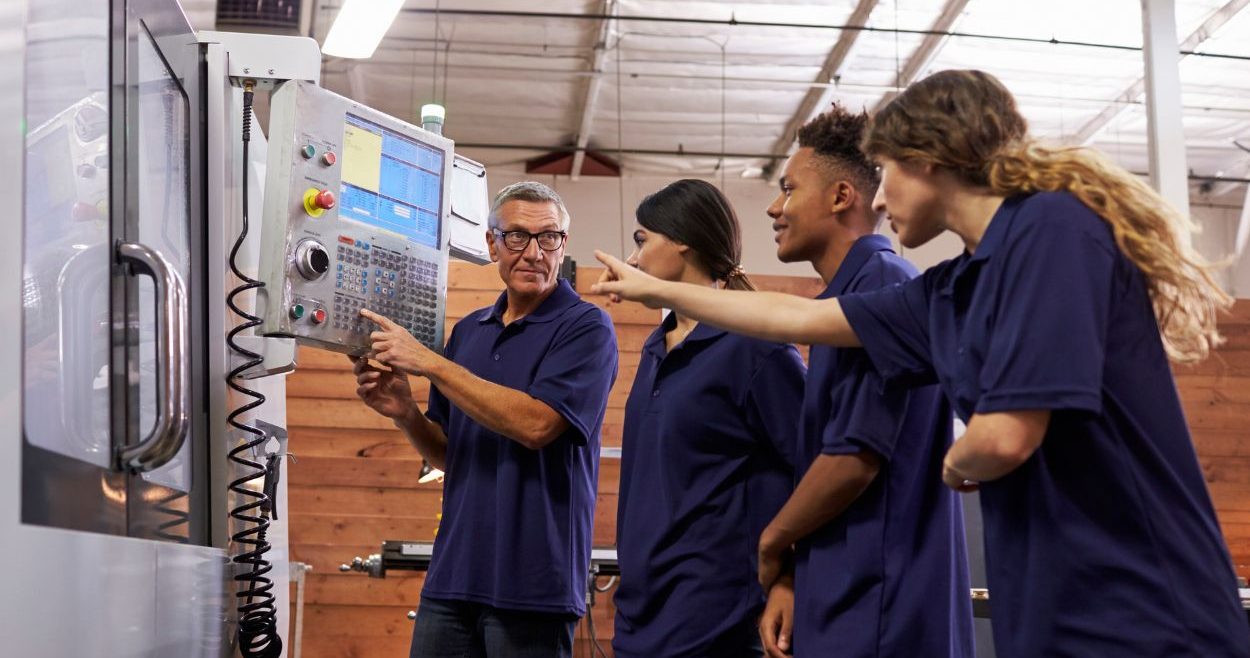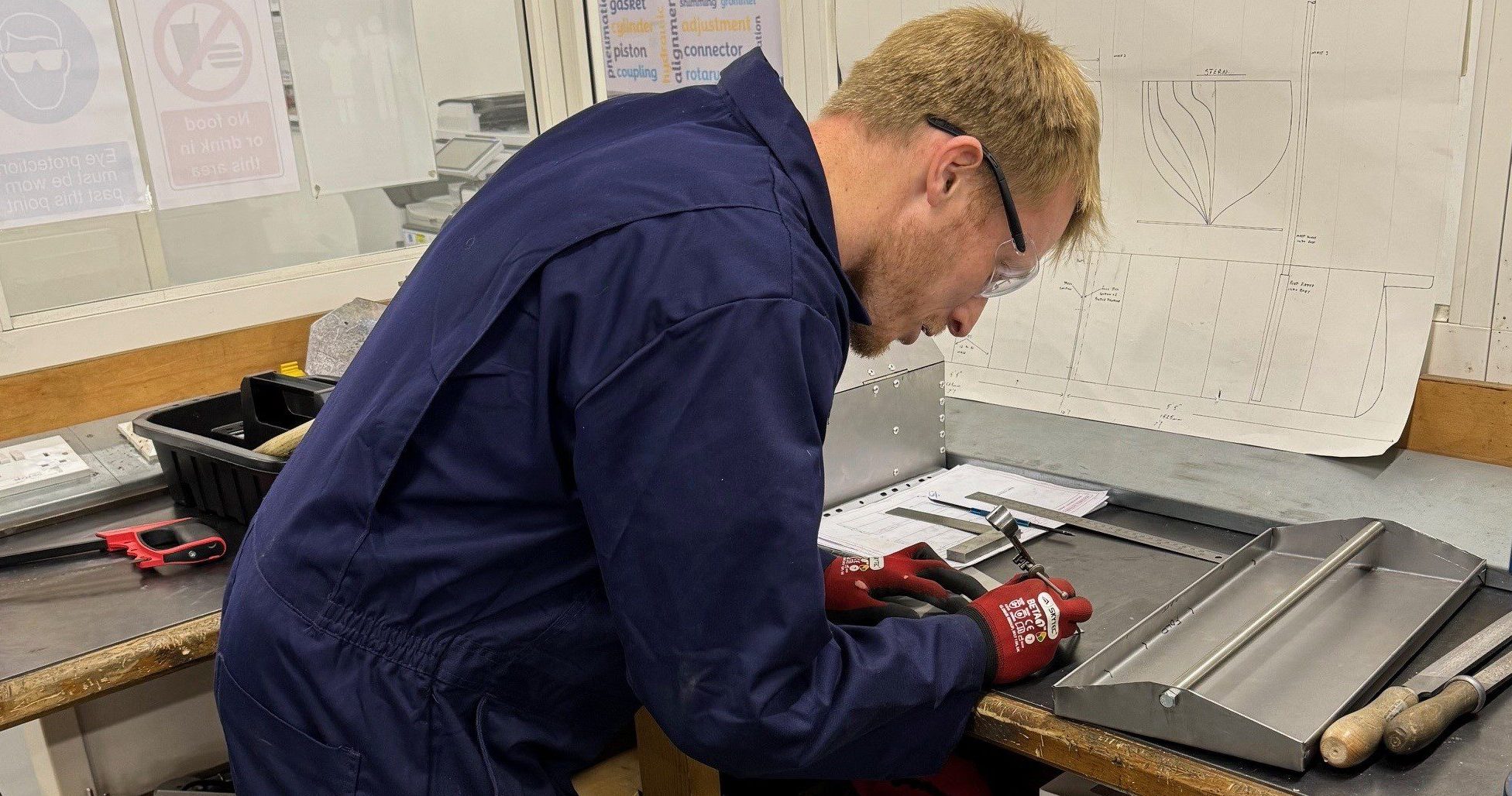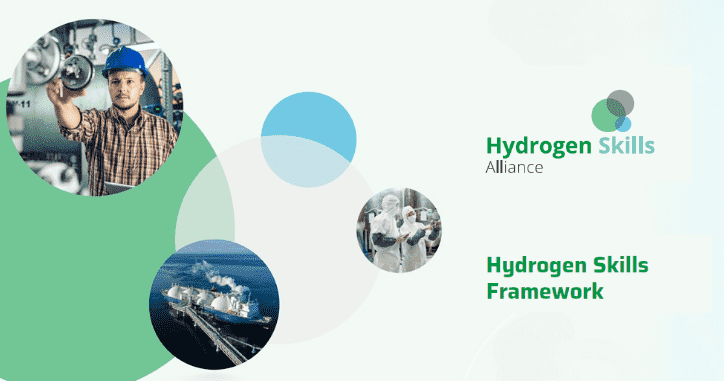200 prospective graduates joined ECITB’s Graduate Week event today (30 October).
Mat Parker, Head of Careers and Inclusion outlined why the engineering construction industry (ECI) is so critical to the UK and globally.
He was joined by representatives from engineering construction employers AtkinsRéalis, Bechtel and Aquaterra Energy who outlined their graduate programmes.
Attendees also heard from Lauriann Williams, a Civil Engineer at RB plant, who gave a graduate’s perspective of the ECI.
Andy Lawrance, Deputy Global Chief Control Systems and Electrical, outlined Bechtel’s 125-year history and its work in driving net zero before Letitia Parnell, HR Operations Partner at AtkinsRéalis, gave an overview of the activities and events its graduates attend as part of its graduate programme.
Watch the recording of the session
The panel responded to some of the questions but did not manage to answer all. The panel subsequently answered these below.
Read more on career pathways into the ECI
 The difference between a first job and a first job at AtkinsRéalisHear from graduates at AtkinsRéalis
The difference between a first job and a first job at AtkinsRéalisHear from graduates at AtkinsRéalisThe difference between a first job and a first job at AtkinsRéalis
 A graduate’s experience of joining Aquaterra
A graduate’s experience of joining AquaterraA graduate’s experience of joining Aquaterra
Questions asked to the panel
Are there opportunities to work internationally? Would there be an option to move abroad?
Ginny: In the Offshore Energy Industry, international opportunities come with the territory whether those opportunities are project based or secondments, all are valuable for career development.
At Aquaterra Energy we have been able to offer a secondment to Australia for one of our Senior Analysts where they built new markets and cemented client relationships.
Were there any challenges you faced early in your career, and how did you overcome them?
Lauriann: Some of the challenges were adapting to the work environment having not had any related previous work experience it was a bit difficult at first to adapt to company culture and processes.
What are some of the biggest misconceptions people have about working as an engineer?
Lauriann: The biggest misconception people have is that they may think engineering is only for men, but I believe engineering can be for everyone it just depends on what you’re into. Engineering can also seem boring but there are so many opportunities in engineering as it’s so broad.
What soft skills do you think are most important for success in the engineering industry?
Lauriann: I think communication is one of the most important soft skills for success in engineering because you will need to be able to communicate your ideas and thoughts to other people as well as communicate it effectively. You are dealing with different people from different backgrounds so communication is key to working collaboratively.
Did you have a role model that inspired you to become an engineer?
Lauriann: I had limited external role models growing up. I was lucky to have family members in the field. My role model was my dad who supported my interest in pursuing a career in construction. Once I knew more about engineering it sparked my passion to become an engineer.
Is this why you created Lauriann’s Stem club to inspire other young women?
Lauriann: Whilst working in the field I recognised the industry needed more representation of females like me who are successful in their career which is why I started Lauriann’s STEM Club to bring more outreach to the young generation so they can aspire to pursue STEM careers.
Which job roles for grads offer the best exposure to the latest technologies in the sector?
Mat: The engineering construction industry is critical to global infrastructure and is therefore at the forefront of many technological advancements.
ECI careers are so varied that you will have opportunities to engage with cutting edge technologies as you advance through your career, whichever path or discipline you choose.
Any tips for getting into engineering if I didn’t study a relevant degree but I would like to change paths?
Mat: There’s a suitable career pathway for anyone interested in engineering. Being proactive is key and will carry you further than you might think. Here are some other useful tips:
- Research the areas that interest you, like mechanical engineering for instance. Learning more about the discipline will help you identify any gaps in your qualifications or experience.
- Seek out internships or volunteer work that allows you to learn and apply engineering skills. Use these experiences to build a portfolio showcasing your work.
- Connect with professionals in the field through LinkedIn, local meetups, or engineering organisations. Networking can lead to mentorship and job opportunities.
- There are a huge number of entry-level roles in engineering-related fields, such as technician positions or internships, which may not require a specific degree. These can often be a good first step.
- Speak to your university careers service – some universities offer bridge programs for non-engineering graduates to transition into engineering roles.
Is there a dedicated grad jobs board for this industry’s schemes or a list of employers somewhere?
Mat: Is there a dedicated grad jobs board for this industry’s schemes or a list of employers somewhere?
There’s a wealth of useful information and links to graduate career opportunities through the graduate pages on our website.
What qualities do you look for in a recent graduate?
Andy: When we are recruiting for a graduate or early career hire we typically look for a degree related to the discipline. It does not have to be an exact match but something that should cover the basics for the work being performed.
During an interview we ask all candidates the same questions in the same order and have agreed scoring for how well a question is answered, currently these questions were set by one of our recent graduates.
During the first interview, which is typically online, we look at how each candidate approaches the question and whilst getting a full and correct answer is clearly a good thing, sometimes seeing and hearing the thought process to come up with an answer is equally revealing.
We also look for candidates we feel will be a good fit within our teams, whether they appear confident and how they address the questions.
What role does sustainability play in the industry today?
Andy: Sustainability plays a very important role within Bechtel. Sustainability is what communities, governments and our customers want. Being more sustainable is the right thing to do.
We are actively working on energy transition projects covering Ammonia, Hydrogen and carbon capture. We have built solar power and wind power facilities around the world.
The work we have done, and continue to do, is helping the industry better understand these new, more sustainable forms of power generation and energy transportation.
Bechtel is ensuring that the industry understands the engineering, procurement and construction factors of the energy transition.
We are also trying to help the industry become more sustainable by supporting the development of sustainable projects. We are also making the construction phase of the projects more sustainable.
We are targeting carbon output and environmental impact on-site, for instance we are currently using hybrid equipment such as the Hybrid D6XE Dozer which uses approximately 30% less fuel than traditional dozers.
If you are an employer and would like to participate in future ECITB events to promote the industry to new entrants, please email
events@ecitb.org.uk








